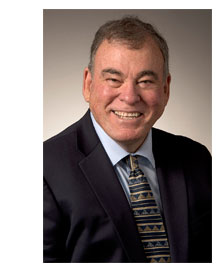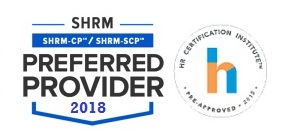Post-Offer Employment Testing Training
Employers across America are becoming aware of Post-Offer Employment Testing practices that result in very large EEOC or federal court settlements. As a result, they are seeking the services of clinicians who demonstrate the ability to practice within federal guidelines for medical examinations.
This one of a kind course will train you to design and test within post-offer employment testing protocols that comply with ADA Title I (42 U.S.C. § 12112 (d) medical examinations and inquiries, (3) employment entrance examination).
Course Topics
Designing the Protocol
- Document the test protocol design process for an EEOC investigator or a private attorney
- How to plan a POET (post-offer employment test) based on the physical and cognitive demands of the essential functions of the job
- Which demands to test: those related to essential functions or those impacting safety?
- When an employer should NOT select a job for testing
- The practical and financial aspects of POET – implementation, time invested, documentation and cost
Denying Testing
- The importance of having two tests in one: a “safe for testing” protocol and an ability-to-work protocol
- When to deny testing versus when to deny employment
- Working with the employer to determine a return-for-testing policy
- The role of physical effort testing during a POET test
- The role of a physician release-for-testing and how it affects denial of testing
Reasonable Accommodation during Testing
- How to listen for a request for reasonable accommodation during testing
- How to legally remediate the impact of physical or cognitive risks presented by a conditional hire’s deficits
The Legal Foundation for Testing
- Learn how the amended ADA shapes what we do, and don’t do, in Post-Offer testing
- Do a conditional hire’s physical and cognitive abilities match the demands of the job?
- Hiring productive workers as opposed to “healthy” workers
- How to not place a worker in a job he is unable to safely perform
This practical course culminates in the draft and validation of a Post-Offer test. Students may use the clinical forms provided in the course package or the Matheson Essential Function Job Analysis and Post-Offer Testing Software to produce a draft POET protocol.
Course Modules
Module 1 – Introduction – Goals of the Course
Module 2 – Build Your Binder – Materials to Download
Module 3 – Assigned Reading and Viewing
Module 4 – Background Concepts
Module 5 – The Purpose and Benefit of Post-Offer Testing
Module 6 – The Legal Foundation of Post-Offer Testing
Module 7 – Program Development
Module 8 – Test Protocol Development
Module 9 – Preparing for Deposition
Module 10 – Test Development Practicum
Module 11 – Other Issues of Note
Training Materials
The post-offer employment testing training uses a variety of printed and digital media.
- 48-plus page course manual with slides and case studies
- 3 digital videos of manufacturing, heavy labor, and office jobs
- 11 on-demand course modules
Bonus Reference Guide
Each participant in our training programs receives a copy of “Roy Matheson’s The Americans with Disabilities Act – Title I Case Reference Document”. This resource includes a copy of ADA Title I, a compendium of federal court and EEOC settlement documents pertaining to employment testing “do’s and don’ts”, and an important discussion of “Undue Hardship”, published in the Fordham Law Review by author Julie Branfield. (see: Julie Brandfield, Undue Hardship: Title I of the Americans with Disabilities Act, 59 Fordham L. Rev. 113 (1990). Also available at http://ir.lawnet.fordham.edu/flr/vol59/iss1/4).
The case reference document is updated from time-to-time with relevant cases or citations. The revised document is sent to each student who has participated in a training program and whose contact information is up-to-date in our database.
 Roy Matheson, ADAC has presented as a keynote speaker, panelist, trainer, or workshop instructor at more than 400 public and private educational events, management training programs, and national conferences. His audience includes managers and staff of federal, state, county, and municipal government entities as well as the full spectrum of corporate entities serving the United States, Canada, and 6 other countries. Roy’s body of work includes hundreds of online webinars and blogs related to Title I of the ADA and the Rehabilitation Act.
Roy Matheson, ADAC has presented as a keynote speaker, panelist, trainer, or workshop instructor at more than 400 public and private educational events, management training programs, and national conferences. His audience includes managers and staff of federal, state, county, and municipal government entities as well as the full spectrum of corporate entities serving the United States, Canada, and 6 other countries. Roy’s body of work includes hundreds of online webinars and blogs related to Title I of the ADA and the Rehabilitation Act.
His consulting and guidance assignments address legal compliance issues raised by Title I of the Americans with Disabilities Act and Section 501 of the Rehabilitation Act. These issues include aspects of employment testing, essential function job analysis, and reasonable accommodation program start-up and management. Roy sees himself as a trusted adviser in demanding situations requiring clear, well-thought-out guidance within the environment of employment and disability-related civil rights law.
$395.00Add to cart
![]()




